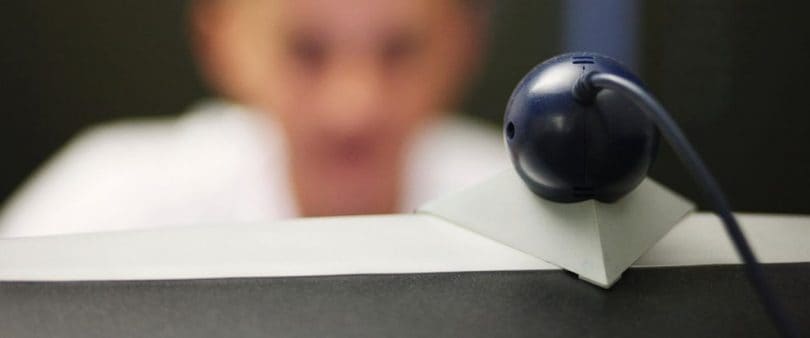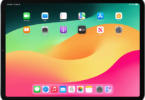Can a mobile phone be located? Can hackers watch us through web cams? Numerous myths are the subject of data security. But which of them is true? The check…
The laptop is standing up on the desk. While you are moving in the room, you might be watched by an eagle eye – the hacker.
A horror scenario of data security – and for many users a reason to tap the webcam on the laptop as a precaution. But is this necessary at all? The biggest safety aids in the check.
You can locate switched off mobile phones
Once the smartphone is connected in some way to a transmitter, it can be located. This works via mobile radio, WLAN or Bluetooth. “Then there is a contact and the phone announces,” explains Fabian Scherschel.
This location usually also works in standby mode. If, however, the phone is in flight mode or switched off, it can not make connections and thus not actually be located and can make you the victim of data security
“There are supposed to be techniques, however, to access an independent chip in the phone anyway,” explains Scherschel. “To be completely safe, one would have to remove the battery of the phone”, says Tim Griese from the Federal Office of Security and Information Technology (BSI).
There are no Mac viruses
“Windows and Android operating systems, however, are more likely to be the focus of attackers because of the higher degree of dissemination,” said Griese. About 90 percent of computers run with Windows. For mass attacks on data security, Mac computers are much more unattractive.
The use of Apple or Linux systems is thus theoretically safer. However, this does not apply to targeted attacks: “The effort for hackers is the same for all operating systems,” says Professor Norbert Pohlmann, Head of the Institute for Internet and data security.
My provider reads my e-mails
In the case of unencrypted messages, this is theoretically always possible. Practically, however, it is not about targeted reading, but about large-area scanning of emails for viruses or for advertising purposes.
“Google is doing this and looking for keywords in the emails to give advertisers advertising,” says Scherschel. This happens automatically as anonymised – and not to monitor users. Google has announced, however, to stop scanning as it is a kind of data security breach.
“In practice, it is more important whether other third parties can have access to emails, for example when using the WLAN in the cafe,” explained Griese. The BSI, therefore, recommends encrypting its emails.
This applies, particularly to sensitive content. In the case of short messages, Scherschel advises for messenger services with integrated end-to-end encryption.
Cookies are bad
Many websites inform their visitors that they use cookies. For some users, this sounds like a warning for data security. In fact, these cookies are often nothing but a kind of bookmark and can be important to the user’s comfort.
“In an online shop, for example, the system remembers the products in the shopping cart,” explains Professor Pohlmann. In many cases, the cookies are absolutely necessary. If you reject a storage, you can delete it using the browser settings.
Google always knows where you are: if you enable the site access on the smartphone, the service providers of all the apps with the right authorization will find you where you are. This includes Android-smartphones, of course, Google – like Apple’s iPhones. The BSI recommends that users review how transparent providers deal with their data and use setting options.
“Google’s use of the Dashboard can be restricted,” says Tim Griese, an example. However, site access can also have a clear benefit, for instance in the case of weather apps, or even as indispensable as in navigation applications.
You will be seen on the webcam
By malware, attackers can actually take over the cameras of devices and can lead to data security breach. “The malicious software is also able to disable the LED to detect usage,” says Tim Griese. Since most users rarely use their webcam anyway, masking is a good strategy.
The spy is also available for smartphones, tablets or smart TVs. “Gluing is generally not practical here,” adds Scherschel. Users are correspondingly more inconsistent here, although theoretically, the same danger exists.








